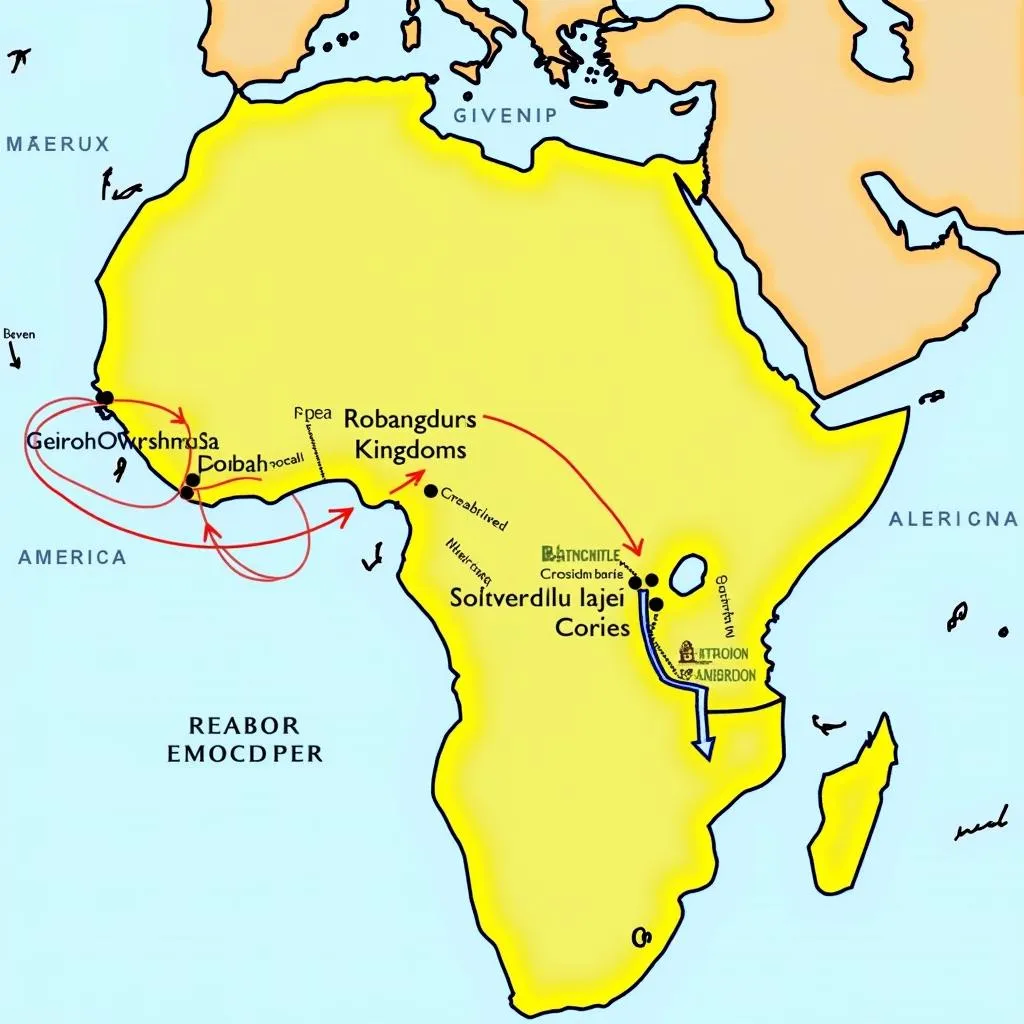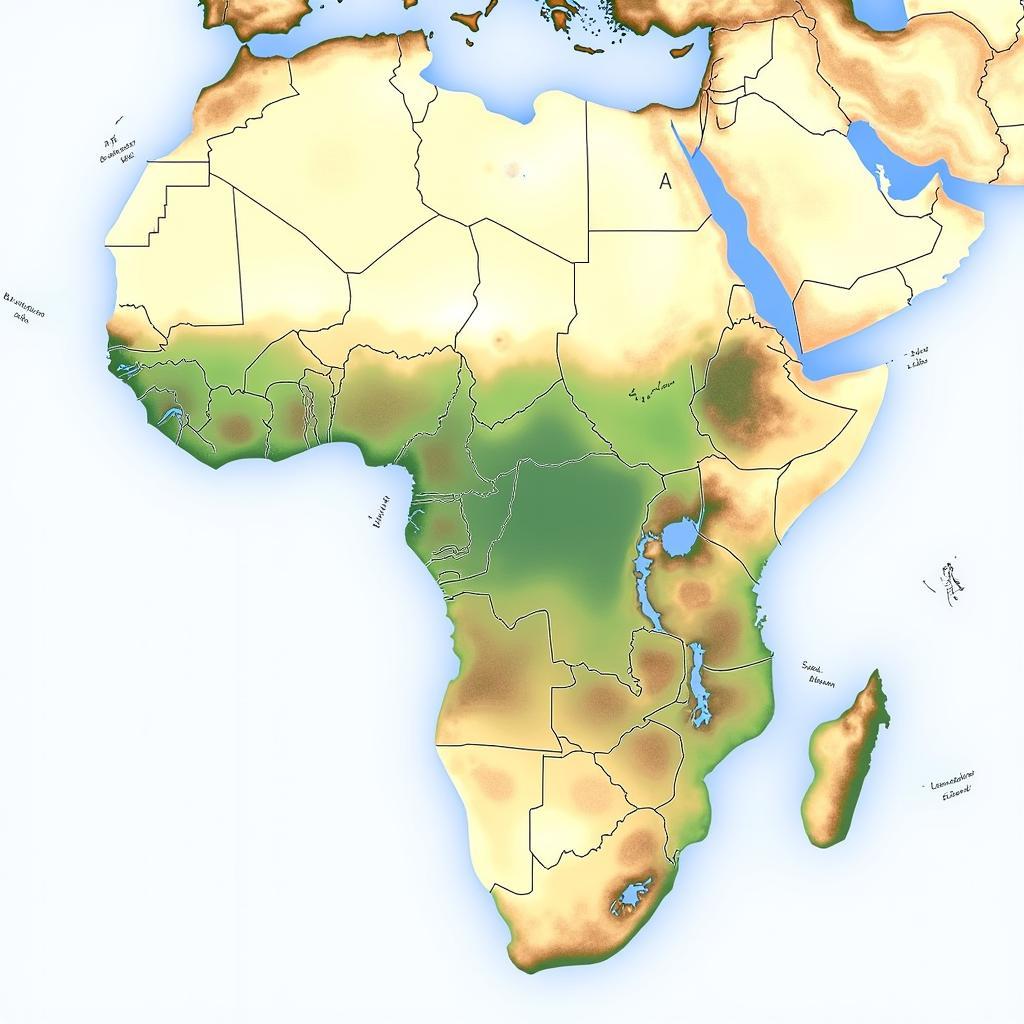African Kingdoms that Provided Slave Labor to the Americas
The transatlantic slave trade, a dark chapter in human history, saw millions of Africans forcibly removed from their homeland and subjected to unimaginable brutality. While European powers orchestrated this horrific trade, their involvement was often facilitated by alliances with specific African Kingdoms That Provided Slave Labor To The Americas. This article delves into the complex historical factors that led certain African kingdoms to participate in the slave trade, examining their motivations and the lasting impact this trade had on the continent.
The Rise of the Slave Trade: A Complex Web of Power and Profit
European demand for labor on plantations in the newly colonized Americas fueled the transatlantic slave trade. Sugar, tobacco, and cotton, cultivated on these plantations, generated immense wealth for European nations, creating a relentless hunger for cheap labor. To satisfy this demand, European traders turned to the African continent, forging alliances with certain kingdoms strategically positioned along the coast.
 Map of African Kingdoms Involved in the Slave Trade
Map of African Kingdoms Involved in the Slave Trade
These alliances were often based on pre-existing trade relationships. For centuries, African kingdoms had engaged in trade with Arab merchants, exchanging goods such as gold, ivory, and unfortunately, enslaved people captured through warfare or raids. The arrival of European traders introduced a new dynamic, with firearms and other manufactured goods offered in exchange for enslaved Africans.
Powerful African Kingdoms Involved in the Slave Trade
Several powerful African kingdoms played significant roles in the transatlantic slave trade. The Kingdom of Kongo, located in present-day Angola and the Democratic Republic of Congo, was one of the first to engage with Portuguese traders in the 15th century. Initially, the Kongo rulers saw trade as a means to acquire wealth and advanced technology. However, the insatiable European demand for slaves led to the kingdom’s destabilization as Portuguese traders began capturing and exporting enslaved Kongolese people against the wishes of the Kongo rulers.
The Oyo Empire in present-day Nigeria, at its peak in the 17th and 18th centuries, derived significant wealth and power from the slave trade. The Oyo military prowess allowed them to capture and sell large numbers of enslaved people to European traders in exchange for firearms and other goods. This access to European weaponry further strengthened their military dominance, creating a vicious cycle that fueled the slave trade.
 Image of Oyo Empire Warriors
Image of Oyo Empire Warriors
On the eastern coast of Africa, the Kingdom of Dahomey, located in present-day Benin, rose to prominence in the 18th century, largely due to its participation in the slave trade. Dahomey’s powerful female warriors, known as the Ahosi, played a crucial role in capturing slaves for trade with European powers, particularly the French. The kingdom’s wealth derived from the slave trade enabled it to acquire firearms and other European goods, further consolidating its power.
The Devastating Legacy of the Transatlantic Slave Trade
The transatlantic slave trade had a catastrophic impact on Africa. Millions of Africans were forcibly removed from their homes, tearing apart families and communities. The trade decimated populations, disrupting social structures and traditional economies. The loss of human capital and the constant threat of raids hindered economic development and innovation.
Moreover, the influx of European firearms into Africa fueled conflicts and instability, contributing to a cycle of violence and displacement that continues to have repercussions today. The psychological trauma inflicted by the slave trade, passed down through generations, has left a lasting scar on the African psyche.
Conclusion: Acknowledging a Painful Past, Embracing a Brighter Future
Understanding the role of African kingdoms in the transatlantic slave trade requires navigating a complex web of historical factors. While it is essential to acknowledge the role some kingdoms played in this horrific trade, it is crucial to avoid simplistic narratives that fail to recognize the broader context of European colonialism, economic exploitation, and the transatlantic power dynamics at play.
The legacy of the transatlantic slave trade continues to shape Africa today. Recognizing the enduring impact of this dark chapter is essential for fostering healing and reconciliation. By acknowledging this painful past, we can work towards a future where all people are treated with dignity and respect.
